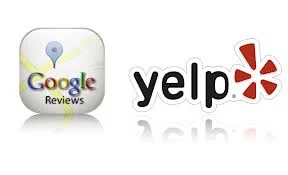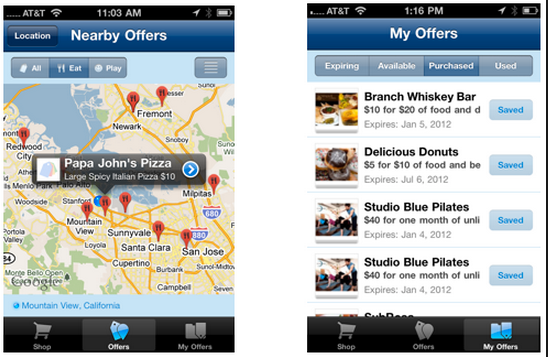Note: this post first appeared on LocalVox.com.
Local ratings and reviews have become a critical part of local online marketing and for good reason. Take these eye opening stats:
- Restaurants with 3.5 stars on Yelp are 63% more likely to be full than those with just 3 stars – a half star difference! (UK Guardian 2012) Tweet this stat!
- 72% of consumers trust online reviews as much as personal recommendations from real people – Search Engine Land, 2012 Tweet this stat!
- 68% of consumers go to social networking sites to read product reviews (Vocus) Tweet this stat!
- 83% of buyers no longer trust advertising but most trust recommendations from users online (Formstack) Tweet this stat!
- 85% of customers expect businesses to be active in social media (Vocus) Tweet this stat!
It’s absolutely critical to have a social reputation management strategy.
But Google is new to the review game with the launch of Google+Local in May 2012 (see all Google Maps Updates and History), whereas industry leader Yelp has been focusing on reviews since October of 2004. As a result, traditionally local businesses have been focusing on their Yelp reviews, but they should start transitioning to focus on Google+Local. Here’s why Google is going to win in the long term (my 2 year prediction).
#1: Google is Integrating Local Reviews In More Places Than Yelp
Google+Local is the number 1 directory on the Internet if you look at usage, because it is integrated into 83% of local Google searches. 83%! And the number one maps app on mobile (both IOS and Android) is Google Maps, where Google+Local is also embedded. That’s game, set and match if you are comparing raw numbers of impressions.
And Google+Local rankings will increasingly be determined by social signals like reviews so you are going to have to focus on your Google+Local reviews to maintain a high organic search ranking (local SEO).
As Google continues to defend its turf in maps and local info, with purchases of Zagat and Waze as examples, they are unlikely to give up their market leadership to Yelp (perhaps Apple should buy them to make a run of it).
#2: Google Places Can Do a Better Job of Filtering Fake Reviews Than Yelp
Source: CBS.com
Both consumers and businesses alike are infuriated by the Yelp review filter. Here is a good post on how the Yelp review filter works and how to avoid it.
Google has access to much more data, including usage of all the other apps like Gmail, Google+, maps, Google Docs/Drive, Android, etc. Because of all this activity, Google knows I am a real person. With all of its algorithmic might, Google is much better suited in this critical field to maintain review integrity.
#3: Google Places Has an Advertising Program That Might Work
Google has an advertising program that coexists with its reviews and directory. Google will be using their AdWords programs to promote offers, sponsored pins on the map, etc.. These are both clearly visible and the offers adds value to the listing and the consumer.
How Long Does the Patient Have, Doctor?
Make no mistake, Yelp will be a key player for a long time, even just as a counter service to Google that will be propped up by competitors like Apple and Bing. Being #2 in an industry is a great position to be (GE famously is only in businesses it can be #1 or #2).
But it seems to me to be just a matter of time before Google usurps the consumer and local business mindshare in terms of what’s important. They have only begun to hint at how to use the metadata they are collecting in new and interesting ways, such as thisGoogle Now commercial which implies it will use reviews to proactively tell you what dishes to order.
2 years from now, consumers will be consulting Google+Local reviews more than Yelp on their mobile devices, which will be the principal interface for researching, selecting and sharing local venues information. And local businesses will respond by sharing their events, announcements and deals on Google+, so it can be a part of their profile and improve SEO.
Google+ taking off? Now that’s a wild prediction for 2014.





